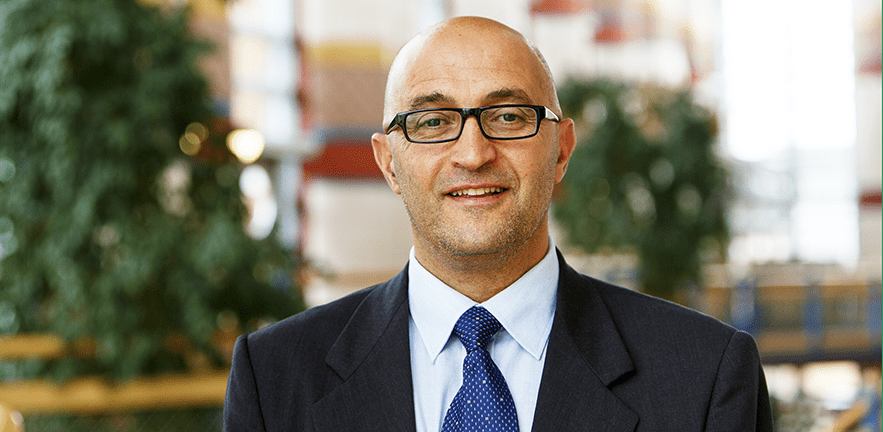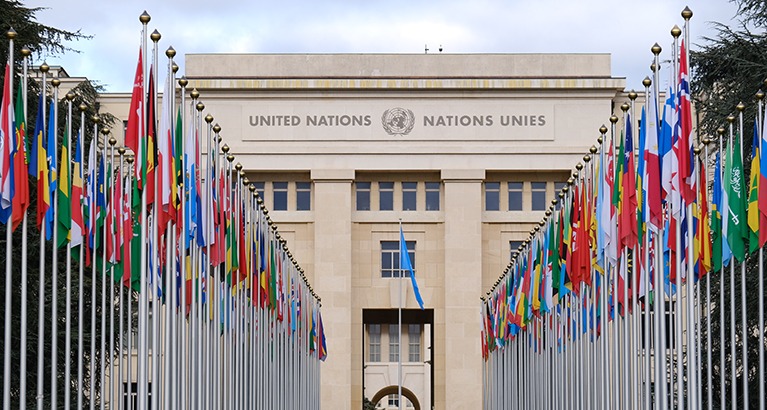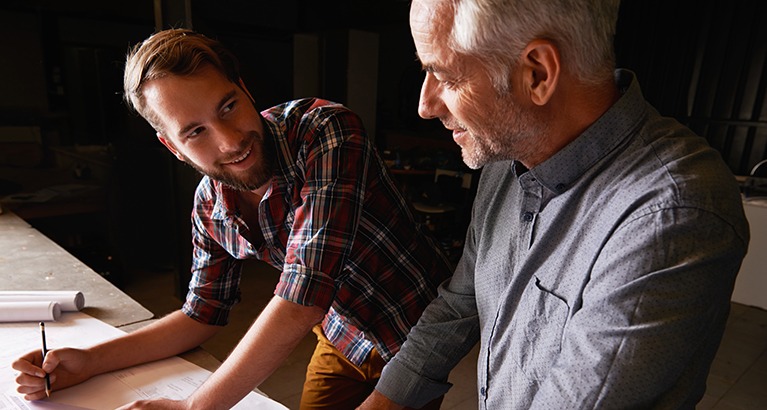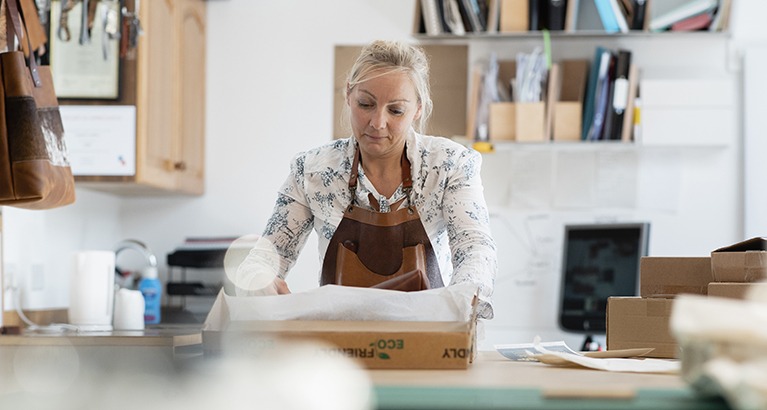When Khaled Soufani, visited his grandmother in Damascus as a small child, he learned a lesson he would remember for the rest of his life.
“It was usually before Christmas, and all the grandchildren and cousins were there,” Khaled says. “My grandma asked if we’d all like new jumpers, and we all replied yes. ‘Then you must give me your old ones’, she said. My grandmother unravelled them all, turning them back into woollen balls and made new jumpers out of already used materials, innovating by blending in some new yarn. As an adult, I looked back and realised my grandmother had been applying the principles of the circular economy decades ago – producing new products from already used materials.”
Cross disciplinary approach of Circular Economy Centre tackles global problems
Khaled founded the Circular Economy Centre (CEC) at Cambridge Judge in 2018, dedicated to researching circularity while embracing a multidisciplinary approach that links circular business models to economics, finance, operations, and marketing.
“The University of Cambridge is the place to develop and introduce impactful ideas. To me, Cambridge is the academic name for developing, introducing, and disseminating impactful ideas in all areas, it is the credibility that comes with a great scientific and academic history,” Khaled says. “Cambridge is about thought leadership in different disciplines. The University of Cambridge is basically the incubator for the great ideas to be born, to scale them up, to support them and then create positive impact in all disciplines. It’s an ideal place to work with colleagues across departments on the principles of the circular economy.
The Circular Economy Centre (CEC) has won a UKRI grant as part of a University of Cambridge consortium to look at ‘Circular Economy Approaches to Eliminate Plastic Waste’. The project brought together departments across Cambridge, the Departments of Chemistry, Zoology, Physics, Engineering, Materials, Chemical Engineering, and Asian and Middle Eastern Studies.
The University of Cambridge is the place to develop and introduce impactful ideas. To me, Cambridge is the academic name for developing, introducing, and disseminating impactful ideas in all areas, it is the credibility that comes with a great scientific and academic history.
How career in investment banking impacts his research and decision making
Khaled has always had a global outlook. He grew up in Damascus and the UK before spending many years in Canada working in his family business and the financial market, returning to England as an undergraduate, studying economics at the University of Nottingham. He then joined an investment bank, working in the operations of bond and money market trading in Toronto and Montreal, Canada.
“It was fantastic. It was very, very stressful,” Khaled says. “You’re dealing with bond and money market trading, dealing with large amounts of money, dealing with institutions, and a lot of economic and financial parameters that are constantly changing. When people are sleeping in New York, the Japanese market is open, and when Tokyo is sleeping, London and New York are open. It was a great experience for someone who had just graduated from university, and who wanted an experience in the financial markets.”
Indirectly it has also had an impact on his research. “When you’re in the financial market it helps you to think fast and to bring a lot of complicated matters into one little pot of thinking – and then be able to connect the dots,” he explains. “The great thing about investment banking is you’re making a decision on something, but that decision needs to be connected to a whole range of economic and financial parameters you’ve observed and learned about, and some things you don’t know about.”
When you’re in the financial market it helps you to think fast and to bring a lot of complicated matters into one little pot of thinking – and then be able to connect the dots.
Interest in circularity has roots in global financial crisis
Khaled then completed a master’s degree in applied economics at Concordia University in Canada while working in his family business and the financial market, followed by a PhD in financial economics, focusing on financing small and medium-sized enterprises (SMEs) at the University of Nottingham. Then returned to Canada to take up an Assistant Professorship position and then a tenured Associate Professorship position in Finance.
His fascination with the circular economy began while co-authoring a paper following the financial crisis, examining areas of the global economy that were growing at a time of almost universal contraction. He discovered the circular economy would potentially be rapidly expanding market and studied the literature of the Ellen MacArthur Foundation which has been leading the way.
Why the circular economy is more important than ever
Current “linear” growth models adopted by companies and countries are heavily based on using resources. It’s estimated that a high percentage of raw materials used in manufacturing become waste before the product leaves the factory, and probably much of the products made get thrown away in the first six months of their existence.
Khaled attributes the growing interest in circularity to 2 main factors:
Disruption to resources
We live in a time of geopolitical, economic, social, technological, environmental, and regulatory disruption. When you put all of this together, the concern about access is not just if resources exist but where do they exist and how can companies get them. A question for companies, organisations and countries is increasingly, if you don’t have access to new materials, can you utilise already used materials?
Increased pressure on resources
From an economic perspective globally, many might argue that we have been over producing, over consuming and over trading. This can lead to over exploitation of resources, which causes a lot of waste.
The mindset of the consumer and their behaviour is moving towards being more aware of the environment.
The groundswell of popularity for the circular economy is also driven by demographics.
“The mindset of the consumer and their behaviour is moving towards being more aware of the environment”, says Khaled. “Before the baby boomers, those employing thrift – like my grandma with her jumpers – were already practicing a circular economy. Then came the baby boomers who generated everything in terms of income, savings, output production, then the millennials, Gen Zs and Gen Alphas. Younger people are very aware of the environment and are keen to ensure the environment is theirs and to secure it for future generations.”
3 ways we can all adopt the principles of the circular economy
1
Design out waste
As a household try to eliminate waste, especially food and plastic packaging waste. Also think about second-hand clothes, toys and textiles.
2
Repair and reuse
Challenge the concept of ‘planned obsolescence’. Use a product for as long as possible and continuously create value from it. Do we really need a new TV after two or three years? Many TVs that are thrown away are in possibly in good working order and contribute substantially to electronic waste.
3
Regenerate our natural systems
Compost if you can and make smart consumer decisions about where your food comes from and how it has been produced.
Bringing a Masters of Finance class to a United Nations meeting
The work of the CEC, led by Khaled, has been published in Harvard Business Review, California Management Review and Stamford Social Innovation. In 2017, the Centre took part in a seminal project on circularity in defence with the European Defence Agency: it identified a number of areas where the principles of the circular economy could be applied including uniforms, procurement and the registration, evaluation, authorisation and restriction of chemicals (REACH). Khaled is also named as an agenda contributor by the World Economic Forum on how car manufacturers can reduce waste and the benefits of green chemistry.
Earlier this year, he was invited by United Nations Economic Commission for Europe (UNECE) meeting in Geneva. The meeting clashed with one of Khaled’s classes – he teaches the circular economy on Master of Finance (MFin), Executive MBA and MSt in Technology Policy programmes – but for him there was an easy solution:
“I mentioned to the organisers that the meeting clashed with my teaching on the MFin class. But I kindly asked them whether I could join remotely with my class of about 15 students if that was acceptable to them. The UNECE meeting organisers were fine with the request, and the students were able to attend the meeting. It was a fantastic opportunity for them to see in real time how a large, important organisation works and decisions are formulated. Wherever possible I try and involve my students with things like this, including my work with the European Union where over 36 students from different programmes have been involved in the research programme since it started.”
Wherever possible I try and involve my students with things like this, including my work with the European Union where over 36 students from different programmes have been involved in the research programme since it started.
Circular economy offers sustainable ways for international community to collaborate
The 2023 United Nations Climate Change Conference (COP28) is being held in Dubai, and Khaled believes the interdisciplinary approach of circularity offers solutions.
“Circular economy should be seen as an enabler to achieving sustainability outcomes and objectives”, says Khaled. “If countries have a vision of sustainability, one of the questions is how we get there. One way is the circular economy.”
“International policy coordination will be key. That’s what COP28 and all the COPs should be about. The circular economy feeds off consensus and collaboration and can’t fully operate if the value chain and the supply chain isn’t circular. Supply chains are costly and scattered all over the world. For example, you can have product that is manufactured or grown in Asia, it’ll be packaged in South Africa, and then sold somewhere else.”
Circular economy should be seen as an enabler to achieving sustainability outcomes and objectives.
Providing access to global perspectives through the Cambridge Executive MBA
Khaled is also Director of the Cambridge Executive MBA, a 20-month degree programme for senior executives. He has been involved since its inception, initially joining as a Professor of Corporate Finance.
“The Cambridge Executive MBA is fantastic”, he says. “We have many really high calibre students. There is an average of over 100 students ever year, flying high in different sectors, and over 60% have a PhD or masters degree already. I love teaching Executive MBAs because you get to discuss how they make corporate financial and operational decisions in their global organisations. You get to hear completely different perspectives. Personally, I learn as much from them as hopefully they learn from me”.
Featured faculty
Khaled Soufani
JManagement Practice Professor of Financial Economics & Policy
Related content
Khaled studies literature of he Ellen MacArthur Foundation which has been leading the way in the circular economy.





